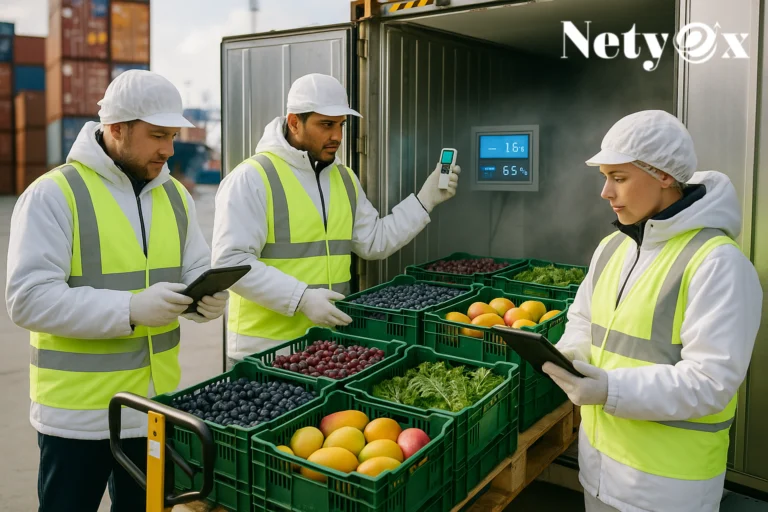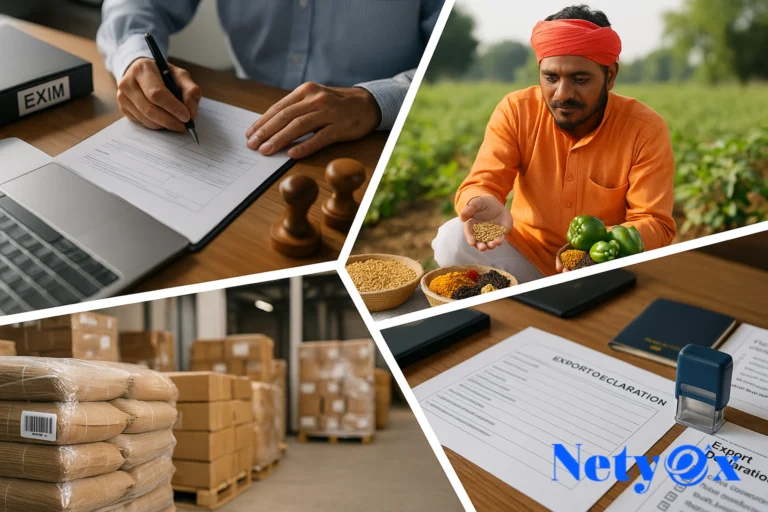Introduction: The Rise of Digital B2B Commerce
In today’s rapidly evolving global economy, B2B marketplaces have emerged as the backbone of international trade. The world has shifted from physical trade fairs and manual procurement to digital ecosystems that connect millions of buyers and suppliers instantly. With technology transforming the way businesses operate, it’s clear why B2B marketplaces are redefining global commerce and ushering in a new era of efficiency, transparency, and growth.
Global B2B e-commerce sales are projected to exceed $20 trillion by 2027, signaling an undeniable trend. Businesses now realize that digital platforms not only reduce costs but also provide unparalleled access to international opportunities that were once reserved for large corporations.
Understanding B2B Marketplaces in Global Trade
What Are B2B Marketplaces?
A B2B marketplace is a digital platform that connects businesses—manufacturers, wholesalers, distributors, and retailers—enabling them to trade products and services efficiently. Examples include Alibaba, Amazon Business, and IndiaMART, which serve as digital bridges between suppliers and global buyers.
These platforms simplify the traditional procurement process by offering features such as real-time communication, secure payments, and logistics integration.
Evolution from Traditional Trading to Digital Platforms
Historically, B2B trade relied heavily on trade shows, distributors, and personal networks. But digital transformation has shifted the paradigm—eliminating geographic barriers and reducing transaction friction. Modern marketplaces now handle everything from discovery to delivery through automation and AI-driven insights.
Key Components of a Modern B2B Marketplace
A successful B2B marketplace typically includes:
- Advanced search and matching algorithms
- Secure payment gateways
- Product verification systems
- Integrated logistics
- Data analytics and reporting tools
These features enhance trust, reduce operational costs, and streamline the entire supply chain.
The Current Landscape of Global Trade
Shifts in International Supply Chains
Global trade has undergone significant changes due to political, economic, and environmental shifts. Companies are diversifying suppliers and adopting digital platforms to reduce dependencies and ensure resilience.
Role of Technology in Borderless Commerce
Technological innovations—particularly AI, blockchain, and cloud systems—are helping companies overcome traditional barriers like paperwork, currency conversion, and fraud.
Emerging Economies and Digital Trade Adoption
Emerging markets, especially in Asia and Africa, are experiencing rapid digital adoption. Local entrepreneurs are leveraging B2B marketplaces to reach international buyers, boosting regional economies.
Why B2B Marketplaces Are Gaining Momentum
Efficiency and Speed in Procurement Processes
Digital marketplaces drastically cut procurement times. What once took weeks of negotiation now takes hours through automated workflows.
Cost Reduction and Price Transparency
Marketplaces eliminate intermediaries, allowing businesses to compare suppliers globally and make data-driven purchasing decisions.
Access to Global Buyers and Sellers
B2B marketplaces democratize trade, enabling small firms to compete on a global stage—something unimaginable two decades ago.
Enhanced Trust Through Ratings and Verification Systems
Verification badges, supplier audits, and buyer ratings build trust, ensuring safer transactions and reducing risk.
Technology Driving the B2B Marketplace Revolution
Artificial Intelligence and Smart Matching Algorithms
AI-driven recommendation systems match buyers with relevant sellers, optimizing discovery and increasing conversion rates.
Blockchain and Supply Chain Transparency
Blockchain ensures transparency and traceability across transactions, reducing fraud and strengthening accountability.
Big Data Analytics for Demand Forecasting
Predictive analytics help suppliers anticipate demand trends, adjust pricing, and plan inventory efficiently.
Cloud Computing and Platform Scalability
Cloud-based infrastructure supports millions of transactions globally, ensuring uptime, security, and scalability.
How B2B Marketplaces Empower Small and Medium Enterprises (SMEs)
Leveling the Playing Field for SMEs
In the past, small and medium-sized enterprises (SMEs) struggled to compete with large corporations due to limited access to global buyers and capital. B2B marketplaces have completely changed this equation. By offering digital storefronts and access to international buyers, SMEs can now showcase their products to millions of potential partners worldwide.
Platforms like Alibaba.com, IndiaMART, and Global Sources allow small manufacturers to list products, receive inquiries, and even process payments online—all without needing an international sales team. This has democratized trade and empowered SMEs to grow beyond their local markets.
Financial Inclusion Through Digital Payments and Trade Credit
One of the biggest barriers for SMEs in global trade is financial access. Traditional banking systems often require collateral and extensive credit history, which small businesses lack. B2B marketplaces solve this through digital payment gateways, trade credit, and financing partnerships that help SMEs manage cash flow and scale operations confidently.
Access to Global Markets and Export Opportunities
SMEs can now export with ease. B2B marketplaces eliminate intermediaries and open direct trade channels. For example, an artisan in Vietnam can sell handcrafted goods to a retailer in France, using online logistics and escrow services to complete the deal safely and efficiently.
The Economic Impact of B2B Marketplaces on Global Trade
Increasing Trade Volumes Across Borders
According to a report by UNCTAD, B2B e-commerce accounted for over 80% of all global e-commerce transactions in 2023. These platforms drive billions in cross-border trade every year, creating jobs and stimulating economic growth in emerging markets.
Reducing Friction in International Transactions
B2B marketplaces reduce transaction costs by digitizing every step—quotation, contract, shipping, and payment. The result? Faster trade cycles and lower overhead for all parties involved.
Promoting Innovation and Competitive Pricing
Open competition within marketplaces forces suppliers to innovate and maintain competitive prices. This benefits buyers with better quality, while suppliers gain valuable data on market demand and customer preferences.
Major Global B2B Marketplaces Leading the Change
Alibaba.com: The Global Trade Pioneer
Alibaba.com remains the largest and most influential B2B platform, serving over 40 million active buyers from 200+ countries. It offers integrated services like trade assurance, supplier verification, and logistics management—making international trade seamless and secure.
Amazon Business and Its Global Expansion
Amazon Business caters to institutional buyers such as hospitals, schools, and corporations. Its powerful analytics tools and bulk-purchasing features enable organizations to make smarter procurement decisions.
IndiaMART, Global Sources, and Other Regional Giants
Platforms like IndiaMART (India) and Global Sources (Hong Kong) play vital roles in connecting regional manufacturers to global buyers. These platforms specialize in niche industries, helping businesses expand internationally without leaving their home country.
Challenges Facing B2B Marketplaces
Trust and Security Issues
While digital trade offers convenience, cybersecurity threats remain a concern. Fraudulent listings and fake suppliers can undermine trust. Marketplaces must invest in AI-based verification, KYC protocols, and buyer protection programs to ensure secure transactions.
Regulatory and Compliance Barriers
Different countries have varying trade laws, taxation rules, and data privacy regulations. Navigating these can be complex for SMEs. B2B platforms are increasingly offering compliance tools and localized guidance to help sellers expand safely.
Logistics and Last-Mile Delivery Challenges
Even with advanced digital systems, physical delivery remains a bottleneck. Efficient logistics networks and transparent tracking systems are critical for ensuring timely cross-border shipments.
Future Trends in B2B Marketplaces
Integration with IoT and Industry 4.0
The Internet of Things (IoT) and automation are set to make B2B trade even more efficient. Smart sensors and digital twins will enable real-time tracking of goods and predictive maintenance for supply chains.
Sustainable and Green Supply Chains
Eco-conscious buyers are demanding transparency and sustainability. Future marketplaces will prioritize green logistics, carbon tracking, and eco-certified suppliers to align with global environmental goals.
The Role of Digital Identity and eKYC in Trade Verification
Digital identity verification systems (eKYC) are becoming essential in ensuring secure transactions. These tools help verify business legitimacy, reducing fraud and improving trust between global partners.
How Businesses Can Leverage B2B Marketplaces for Growth
Building a Strong Online Presence
A compelling profile with professional product images, certifications, and optimized descriptions can dramatically improve visibility. Consistent engagement and quick response times further build credibility.
Using Data to Improve Buyer Engagement
Marketplaces provide analytics on buyer behavior, popular products, and price trends. Businesses that leverage this data can adapt faster, personalize offers, and win more contracts.
Developing Long-Term Global Partnerships
Instead of focusing solely on one-time sales, businesses should nurture relationships. Providing excellent service, flexible pricing, and consistent quality leads to recurring orders and long-term growth.
Case Studies: Success Stories from Global Traders
How SMEs from Asia Expanded Globally via Alibaba.com
A small textile manufacturer from Bangladesh joined Alibaba.com in 2018. Within two years, it grew from local production to exporting to over 15 countries. By leveraging Alibaba’s trade assurance and marketing tools, the company increased revenue by 300%.
The Transformation of U.S. Manufacturers via Amazon Business
An American machinery supplier used Amazon Business to reach buyers across Europe and Asia. Through data-driven pricing and targeted advertising, it reduced customer acquisition costs by 40% and achieved international expansion in under a year.
Expert Predictions on the Future of Global B2B Trade
The Decentralization of Supply Chains
Experts predict that by 2030, decentralized, AI-managed supply chains will dominate. This will reduce dependency on single regions and improve global trade resilience.
Cross-Border Collaboration and Digital Trade Agreements
Governments are embracing digital trade frameworks that simplify e-commerce taxation, documentation, and customs. These agreements will make it easier for SMEs to participate in cross-border commerce.
FAQs: Common Questions About B2B Marketplaces
1. What makes B2B marketplaces different from B2C platforms?
B2B marketplaces focus on business transactions involving bulk orders, long-term contracts, and negotiated pricing, unlike B2C platforms that cater to individual consumers.
2. Are B2B marketplaces safe for small businesses?
Yes. Most leading platforms implement strict verification, escrow systems, and trade assurance programs to ensure safe and secure transactions.
3. How do B2B marketplaces help reduce trade costs?
By eliminating intermediaries and automating procurement processes, they minimize operational costs and enable transparent price comparisons.
4. Which industries benefit the most from B2B marketplaces?
Manufacturing, construction, agriculture, electronics, and consumer goods sectors benefit most due to high demand for bulk trade and reliable suppliers.
5. Can B2B marketplaces replace traditional trade fairs?
While physical fairs offer personal interaction, digital marketplaces provide scalability, data insights, and global reach—making them more effective in the long run.
6. What’s the future outlook for B2B e-commerce?
The B2B e-commerce sector is expected to grow at over 17% CAGR through 2030, driven by AI, automation, and global digital adoption.
Conclusion: The New Era of Global Trade Efficiency
The global trade ecosystem is undergoing a monumental transformation—and B2B marketplaces are at the heart of it. By integrating cutting-edge technologies, reducing trade friction, and empowering SMEs, these platforms are reshaping how the world does business.
The future of global commerce will be digital, transparent, and inclusive. Businesses that embrace B2B marketplaces today will lead tomorrow’s global economy—faster, smarter, and more sustainably than ever before.













